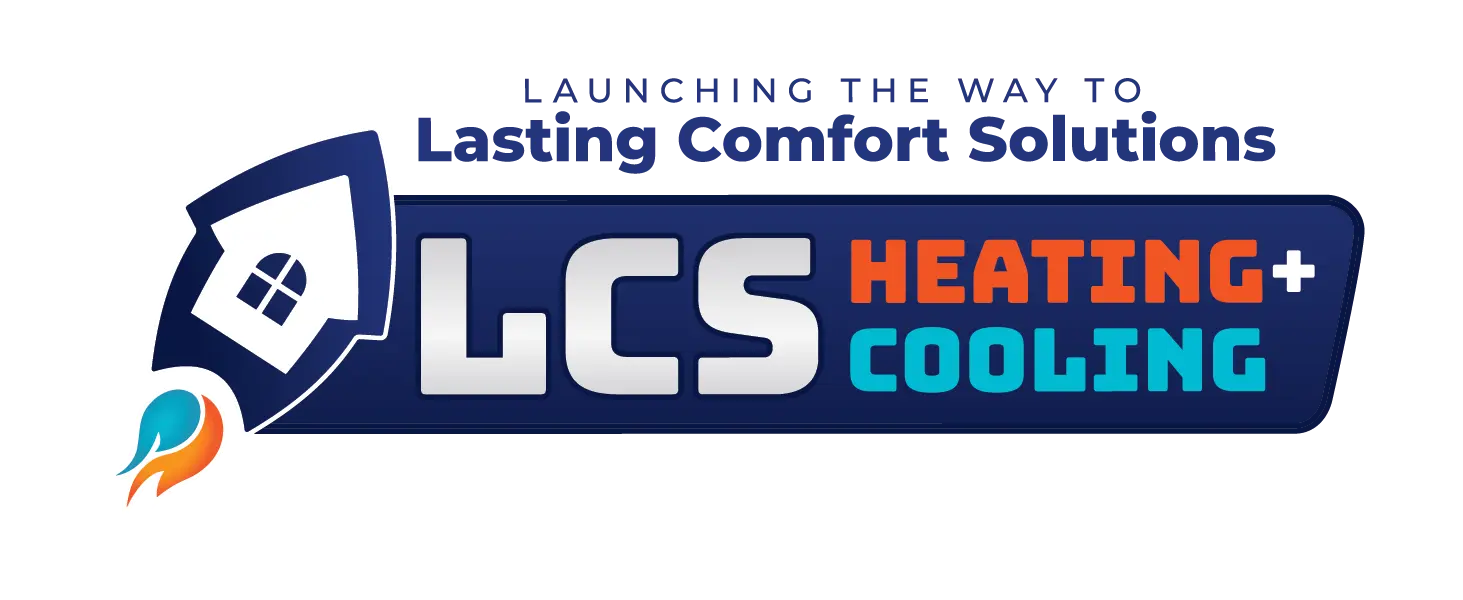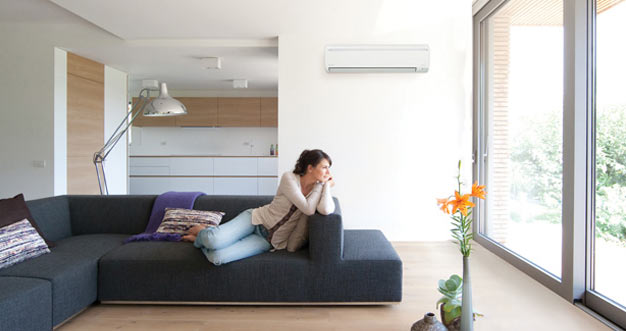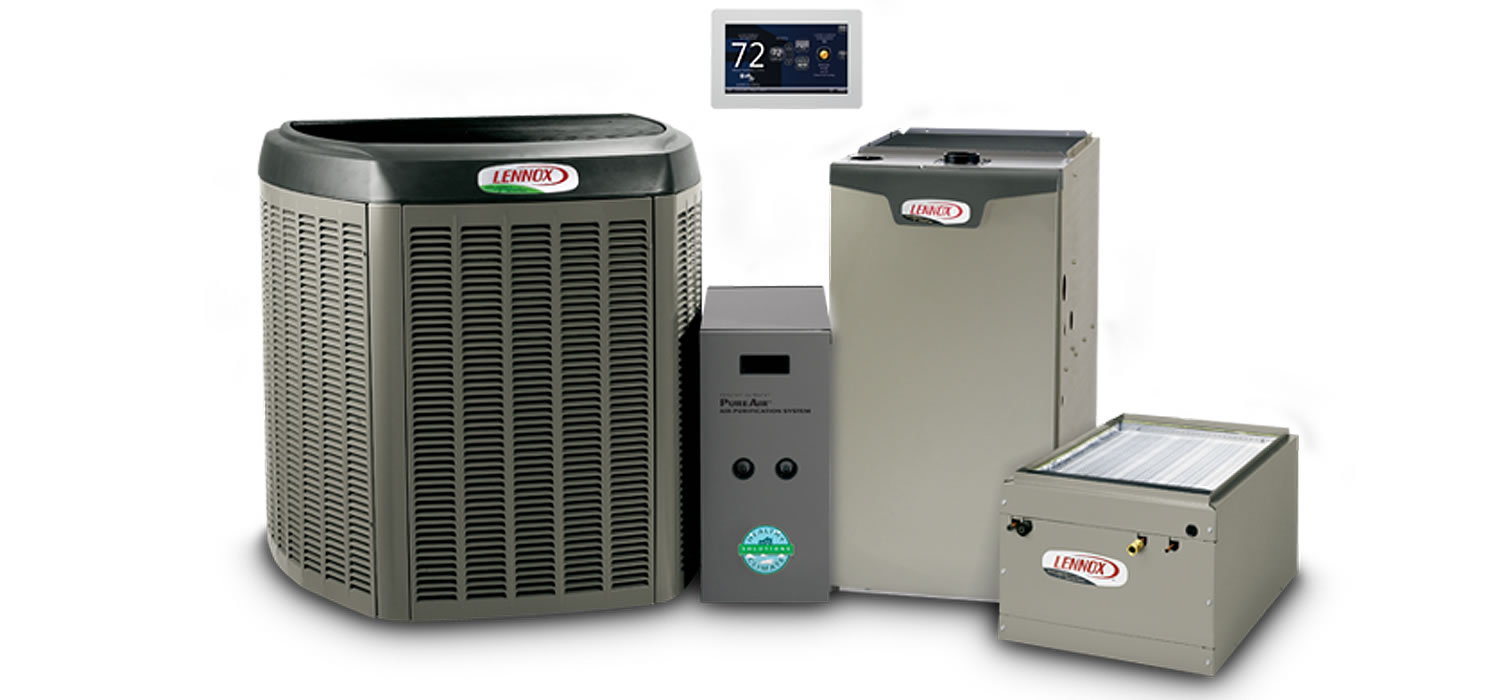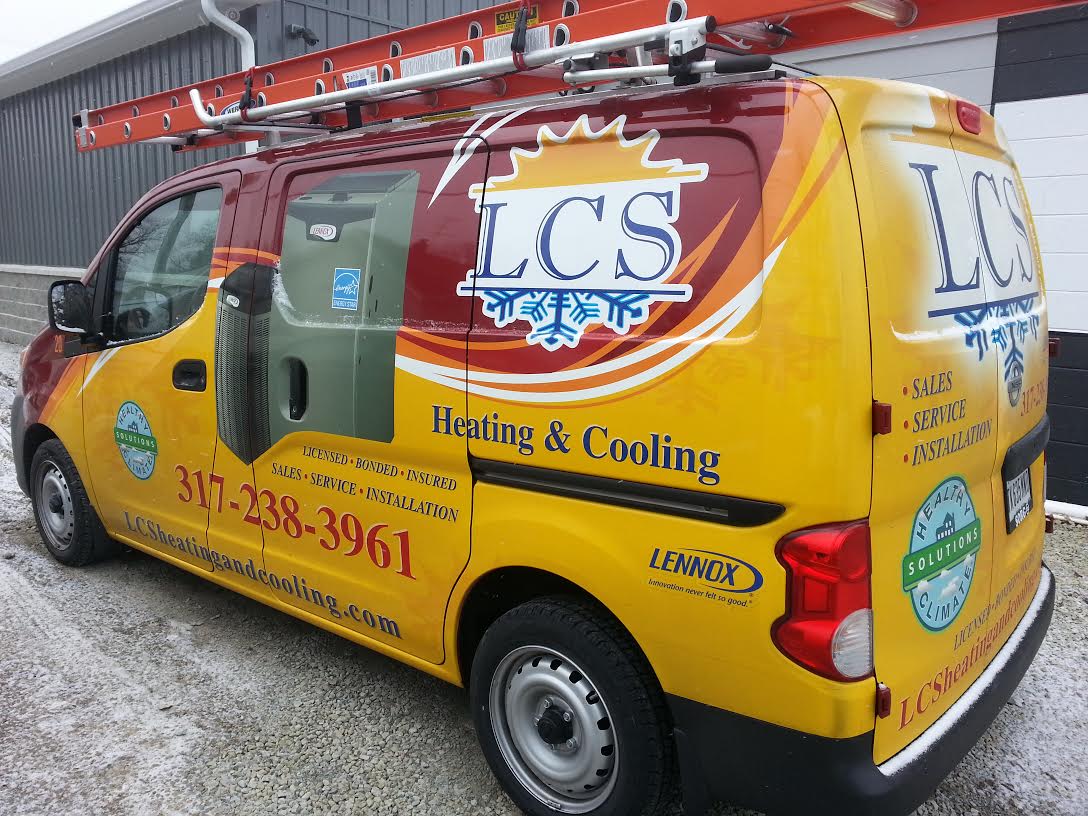Check-ups for your kids, any pets, and the car all have their purpose. You want to make sure everything is working as it should, and your preventative HVAC maintenance isn’t much different. Scheduling regular, preventative maintenance for HVAC equipment helps homeowners stay “in the know” on their system.
Before the seasons switch, make an appointment with your local HVAC company to make sure everything is okay with your cooling system. No one wants to wake up to a broken AC unit right when the weather starts heating up! Make sure your technician reviews the following on your system (and with you) for a job well done.
What’s Covered in Your Cooling Tune-Up?
Your annual maintenance process should always include a detailed review of the inside and outside components of your cooling system. It’s important to get an AC tune-up done once a year to prevent unnecessary issues. Scheduling your service during the cooling season can help you get the best benefits!
There are many different technical parts to review in your unit. Testing each of these areas takes a little time, but going through them one-by-one will help your technician identify any air conditioner problems that may occur. If you can isolate errors to a single step in your system’s process, it will be easier to keep repair costs down and extend the lifespan of your AC unit. Your cooling tune-up should always include tests for:
- Check operating pressures and temperatures
- Superheat measurements
- Temperature drop at return and supply air
- Contactor condition and operation
- Proper operation of controls
- Wiring and electrical connections
- Fan and inducer motor voltage and amperage
- Function of capacitors and relays
If all of those tests are completed in good working order, your tech would then move on and perform steps for ongoing maintenance. Because dirty units won’t be able to run properly, these items are very important for every tune-up. A few more details can help keep your system running at peak efficiency:
- Lubricate blower motor, condenser fan, and other moving parts (if needed)
- Clear the condensate drain for overflow protection
- Clean outdoor condenser unit for proper airflow
The final steps on the check-list relate to customer care. Your technician should always be ready to review your key concerns about your AC’s operation and be able to address the following for a full-service review:
- Check thermostat and adjust (if needed)
- Evaluate air filters, and clean or replace (if requested)
- Review equipment condition and answer any questions
If your HVAC technician can complete the following, you will probably be all set for annual maintenance. As the old adage goes, “An ounce of prevention is worth a pound of savings!”
HVAC Savings with Annual Maintenance
Scheduling annual maintenance is also smart for homeowners looking to save money. Some HVAC companies offer special discounts for their annual maintenance clients. At LCS Heating and Cooling, these HVAC discounts are included in with your LCS Gold Star Membership or LCS Platinum Star Membership. Each membership comes with a monthly payment option—and tons of great savings.
Available for both residential and commercial customers, these memberships work to give you maximum efficiency for your heating and cooling tune-ups at the minimum cost. Both Gold and Platinum Star Memberships offer 10% off repairs, 15% off indoor air quality products and services, and discounted after-hours rates. If anything does go wrong with your unit, it’s great to be a member.
Gold Star Membership automatically gives you $20 off service calls, and even waives the service call with a paid repair over $300 during regular business hours. Platinum Star Membership includes a year’s supply of filters, plus a waived service call for any paid repair during regular business hours. Platinum members also get to participate in our special loyalty program. The longer you stay on the maintenance plan, the more benefits you receive. You can even earn up to $700 towards a full system replacement!
Quality HVAC Service with LCS Heating and Cooling
Your HVAC preventative maintenance and other air quality upgrades help keep your home comfortable and energy-efficient. (And the savings aren’t bad, either!) If you’re ready to give your HVAC units the care they need for a great, long-term performance, give us a call at (317) 238-3961. We’d love to talk with you about our HVAC Membership benefits!
Being pro-active will help keep your systems operating smoothly for years to come. Don’t wait to face AC repairs later in the year. Preventative maintenance helps homeowners stay on the ball and plan for possible problems in advance. Contact the HVAC experts at LCS Heating and Cooling to tune-up your system and start saving today!
February 28, 2018
Not sure who to call when the AC breaks down? You’re not alone! Deciding which HVAC company to go with can be a confusing process, but things get a lot simpler when you work in stages. If your AC isn’t working quite right, or you’re thinking about a system upgrade, take a look at these checklist items first. A little research can help you find an HVAC company you can trust.
Part I: Examining Your AC Unit
Whenever you can, try to check on a few things with your unit before making a service call. Sometimes a quick fix is all you need to solve the problem.
- Check the thermostat. This is often the first place we go, but double-check to make sure it’s set correctly. If the thermostat screen is blank, that might mean you need to replace the batteries (if it takes any).
- Replace your air filter. Hands down, the best way to keep your HVAC unit in good order is to regularly change your filter. Old filters restrict air flow and can even stop your system from working if they’re dirty enough.
- Clear the area around your AC unit. Landscaping debris might be blocking the air flow around your system. Make sure the unit can run properly and efficiently by cleaning up, and then confirm that the breakers are turned on.
If nothing has changed after taking those steps, it might be time to call in a professional. Try to make a couple notes on your unit’s symptoms so you have all the information you need to schedule the visit. Strange noises with your HVAC unit, odd smells, and any new cold or hot zones in your home are all indicators that your system needs servicing.
Part II: Finding a Reputable HVAC Company
So you’re ready to bring in the professionals, but not sure who to call? You’ll be more likely to find a great HVAC company when you stick to a few guidelines.
- Ask your contacts about recent service. Try posting a status update on social media to say you need service. Your friends and family will be happy to tell you about their last HVAC experience—whether good or bad, you should easily be able to get a few first-hand accounts about local companies.
- Read online HVAC reviews. More and more people are using Yelp to review HVAC companies. If you have a company you’re thinking of calling, check out a few of their reports first. It’s a good sign if customers are praising their HVAC repairs, not just the system replacements. That usually means the company is honest (because they’re not trying to up-sell) and works with your best interests in mind.
- Confirm that the company is bonded, insured, and licensed. The City of Indianapolis requires a permit for replacing an air conditioner. Visit your HVAC company’s website to make sure they are licensed in your area. Working with a company that’s bonded and insured will also protect you from any complications that might happen during a service call.
When it comes to HVAC repairs and new installations, a company’s experience matters a lot more than their location. Your best option may not always be the company that’s closest to you, so feel free to check credentials in a wider radius.
Part III: Reviewing Your AC Service Call
Once you’ve selected a company to try out, pay close attention to how they handle your service during their visit. Comparing etiquette is often just as important as comparing price!
- Was the technician professional? Using shoe coverings in your home and cleaning up around the worksite are signs of good employee training.
- Is the company’s pricing straight-forward? Having a flat-rate fee for service calls is standard practice, but it’s an added bonus if your HVAC company says they’ll waive the service fee if your system needs more expensive repairs.
- Did your technician explain the next steps? A good tech will tell you exactly what they checked and be able to confidently answer all of your questions. If they said a certain part on your unit needs replacing, they should also tell you whether it’s covered under warranty.
Last but not least, be sure to trust your instincts when hiring a new home services company. Doing your research is definitely a plus, but sometimes you’ll just know a good thing when you see it. If you’ve already vetted your new HVAC company, the only other thing you can do is to go with your gut!
May 31, 2016
The last thing on anyone's mind right now is HVAC. It's too warm to need the furnace and too cool to need the air conditioner. We do live in Indiana though so that can change in just 24 hours! We want to provide some tips for things you can do on your own to keep your furnace and air conditioner running at its best. We present the LCS Top Ten of Homeowner DIY HVAC Tips:
10. During cold or hot months, keep the programmable thermostat set within 3 degrees of each setting. A furnace and air conditioner will have to run for a very long time to make up the temperature difference. If you have an electric furnace
and heat pump, the electric furnace will come on as well to reach the set temperature. Since an electric furnace runs at a higher cost, it counters the savings that you might have had with the lower initial temperature.
9. Keep the weed eater and lawn mower away from the control wiring of the air conditioner. The wiring should not be hanging down but if it is, be careful when mowing and weed eating. It's not a high voltage wire but if it gets cut with a weed eater or mower, you can get shocked and it can take out the air conditioner. If the wiring is loose or hanging down, tie it up with electrical tape or have a technician tie it back when they're out doing annual maintenance.
8. If you are experiencing high utility bills, call the gas or electric company first. Ask the utility company if there's been an increase in the therm or electric rate. Ask if your bill compares to the average of others in your neighborhood. You can get great information about what your utility bill should be running. If there isn't a good reason for the higher bill, then it might be time to have a technician out to make sure the system is operating properly.
7. Move furniture away from registers. It's not uncommon to see a couch over a register or a bookcase pushed up against a register. Not only can the heat dry out your furniture but it also prevents the air from properly traveling throughout the rooms.
6. Keep registers open. A very common problem in two story homes is a temperature swing between the upstairs and downstairs. Homeowners try to fix this problem by closing registers upstairs or in some rooms. Keep the registers open. Closing registers can restrict air flow and cause the furnace to run hot. This can ultimately shorten the life of parts inside the furnace such as motors. It can also make the air conditioner freeze up by reducing the volume of air that the system needs to expel throughout the house. This is comparable to running the system with a dirty filter.
5. If you notice a noise, smell or problem, call on it right away. If you notice something unusual, don't ignore it. It's rare that an HVAC issue will go away or resolve itself. Noises and smells often mean that a part is getting weak or going out. A little critter could also have gotten inside. Address these issues before your furnace or air conditioner goes completely out. It's no fun being without heat on a cold day or without a/c when it's hot out!
4. Keep dogs away from the air conditioner. Animal urine will degrade the a/c fins. There's not much that can be done to fix the fins once this happens so it's best to make sure the fur babies stay away.
3. Replace the batteries in the thermostat. If the thermostat goes blank, check to see if there are batteries that need changed. Not all thermostats have batteries, but if it does, it's likely AA or AAA batteries that need changed.
2. Pick up leaves that are around the air conditioner or heat pump. Leaves, cottonwood, branches, etc can gather around the air conditioner. Keep these things cleaned away so the outdoor unit can breathe.
1. CHANGE THE FILTER! This is the number one thing to do to keep your furnace and air conditioner running efficiently! A dirty filter causes restricted air flow and can ultimately cause the system to stop working. If you have a 1" filter, check it once a month. If you have a 4-5" filter, check it every 3 months. It may not need to be changed at that time but it's good to check it to make sure. It's also a good idea to keep extra filters at the house. That way, you always have one on hand when it's time for it to be changed.
A couple of other tips are to caulk or re-caulk around windows and doors. It's also a great idea to check the insulation in your home. If you don't have at least 12-15" of insulation in the attic, you'll want to consider adding more!
Keeping up on these things can not only save you money but can save you from the inconvenience of being without heating or cooling during those hot and cold months. HVAC equipment is definitely an investment. Protect your investment by following our Top Ten tips!
April 23, 2015
Big news in 2015 for the HVAC industry! Have you heard!? There's a new Seer minimum in place! Okay, let's be honest, unless you're in the HVAC industry working with this every day, this is likely not very exciting news. There's a pretty good possibility that you haven't even heard about it! We're here to explain what the new minimum is, what it means, and how it affects you.
A Seer rating is an energy efficiency rating on air conditioners and heat pumps. At the end of 2014, the minimum Seer rating was 13 seer. The new minimums affect some parts of the United States differently than others. For these purposes, the U.S has been divided into a North Region, South Region, and Southwest Region. Since we're located in Indianapolis, we'll focus on the change in Indiana, which is in the North Region.
What is the new minimum? Effective 01/01/2015, the new minimum Seer rating for heat pumps has changed from 13 Seer to 14 seer. For now, air conditioners are staying the same at 13 Seer.
What does this mean? 13 seer heat pumps are no longer being manufactured. When you are ready to replace your current heat pump, you'll likely be quoted at least a 14 Seer. A 14 Seer heat pump will come at a higher initial cost than a 13 seer heat pump but there's also more energy savings with a 14 Seer.
Can I still get a 13 seer heat pump? For a while, there will be 13 seer heat pumps that were manufactured in 2014 or before that are still available. The entire U.S. has moved to a minimum 14 Seer heat pump rating, so once those 13 seers that were manufactured in previous years are gone, they're gone.
Does this affect me now? We saw an advertisement recently in which the message was implying that everyone had to replace their heat pumps now to adhere to the new standards. This is simply not true. The new standards are for new equipment going forward. The new standard does not say you have to upgrade right now! It's not illegal to currently have a 13 seer heat pump installed in your home. It just means that when it's time for new equipment, 14 seer is the minimum.
Does this affect me if I have an air conditioner? No, it does not! The new standard in Indiana is for heat pumps only. Eventually, yes, air conditioners will also move to a minimum 14 seer rating but it's not happening this year in Indiana or any of the North Region. In other states (the South and Southwest Regions), the minimum has already changed for both air conditioners and heat pumps.
We hope this helps to answer your questions about the new minimum seer ratings!
March 24, 2015
We get lots of questions regarding HVAC maintenance. This is a good thing! It means people care about their HVAC investment. Since we're entering air conditioner season, let's focus on questions relating to air conditioner maintenance:
- What is air conditioner maintenance? Preventative maintenance is completed on the a/c to ensure that it is running properly and as efficiently as possible. The air conditioner is cleaned and there are many components that are checked. If a reading is off or out of range, the homeowner will be made aware. Keeping the air conditioner clean also ensures proper air flow.
- Can I turn my air conditioner on before maintenance has been completed? Yes! The air conditioner can certainly run before maintenance is done. Keep in mind that maintenance keeps it running as efficiently as possible.
- What months do you schedule maintenance? We generally start scheduling maintenance mid-April, depending on the weather, and continue to schedule throughout the summer. It's more important that maintenance is done each year rather than it being done a specific week or month.
- Can the service be completed if it's raining? We will reschedule your maintenance appointment if it's raining or below 60-65 degrees outside. Although the techs do have raincoats, we don't want some of the tools and gauges out in the rain. We also don't want your a/c exposed to the moisture. The new R-410 refrigerant attracts moisture 10 times more than the old R-22 refrigerant. We don't like to take chances, so we'll always reschedule if it's raining. In addition to being dry outside, it also needs to be at least 60-65 degrees outside. If it's colder than that, the temperature drop and readings could be inaccurate. Accuracy is key, so we will reschedule if it's too chilly outside.
- How will I know what the technician does during the service? The technician will complete an invoice detailing everything that was completed during the maintenance service. He will also let you know how everything looked and answer any questions you have about your system.
- How much does an annual maintenance plan cost? Our plan is $150 per year. That includes the maintenance service on the a/c in the spring or summer and the maintenance service on the furnace in the fall/winter. Other benefits included with the plan are: No service call if a return visit is needed within 30 days, $10 off service call, 15% off repairs, 15% off indoor air quality (humidifiers, filters, thermostats, UV lights, etc) and no overtime rates if service is needed in an evening, weekend or holiday.
- Does maintenance guarantee that my air conditioner will not break down? Air conditioners are machines and can break down at any time. That being said, there are issues that can be found during maintenance and either repaired at that time or at least brought to the homeowner's attention. For example, the technician may see that a motor reading is in range, but on the high end. While it doesn't necessarily need replaced at that time, the homeowner can be made aware that the motor is on it's way out. It could last another week or it could last another 6 months. In any case, the homeowner is now aware.
- Will you change my filter while you're here doing maintenance? Absolutely! If you already have filters, we will gladly change it for you. If you don't have filters, we can provide you with the price to bring one with us. We also have an online filter program in which we can provide you with a code to order your filters online and have them delivered to your door. Shipping is free and you'll always have your filters on hand.
- What if I have two HVAC systems at my house? We can put each system on the annual maintenance plan. We'll schedule a longer period of time to be at your house to complete maintenance on both air conditioners (and same in the fall/winter for the furnaces). The second system would be $10 off ($150/$140 for two plans).
- Do I need to be home when you do the air conditioner maintenance? Preferably, yes. We will need access to the thermostat and furnace area so will need inside the house. If you have a lockbox or garage code, we can enter that way but always prefer having someone home so the technician can answer any questions while he's there.
Hopefully, we answered some of your questions about air conditioner maintenance! If not, feel free to contact us as we're happy to discuss.
May 1, 2014
We've had one of the coldest winters on record here in Indianapolis so it seems everyone has spring fever! With the arrival of spring comes a whole checklist of home maintenance items just waiting to be done. Here's a list of items that you can do around your home
to tidy up and get ready for summer:
- Schedule air conditioner maintenance (you knew this would be #1 on our list, right?)
- Change the filter
- Install new batteries in thermostat
- Install new batteries in smoke and carbon monoxide detectors
- Test and dust all detectors
- Check fire extinguishers
- Inspect bathroom, kitchen, door and window caulk; re-caulk as needed
- Clean and seal deck if needed
- Inspect exterior paint and touch up as needed
- Inspect siding/masonry for damage
- Repair/replace damaged window screens
- Inspect roof for damage
- Inspect outdoor play equipment
- Inspect attic for leaks
- Inspect attic insulation
- Clean gutters
- Prune spring and summer- flowering shrubs after they bloom
- Schedule yearly septic tank inspection
- Schedule irrigation inspection
- Inspect foundation for drainage problems
- Inspect crawl space/basement for moisture issues
Preventive maintenance goes a long way. Monitoring items such as these can prevent big problems in the future! Enjoy spring!
April 8, 2014
In an ideal world, furnaces and air conditioners would only need service during regular business hours of 8am-5pm, Monday through Friday. That's not reality though! Customers will often say things like "I'm having people over for the holiday and my furnace just quit working" or "of course this couldn't have happened during the day" or "it was working fine yesterday!" HVAC can be unpredictable which is why Emergency Service or After Hours Service is available.
We want to provide a little information on our after hours service and some changes that have taken place within LCS. We have a story for you:
Many of you have either met or spoken to Travis or Renee, the owners of LCS Heating and Cooling. For over eight years, Travis and Renee took all of the incoming calls. With the continued growth of LCS, they were finding that they couldn't keep up on the calls. People were getting frustrated for a few reasons: 1. They were getting voicemail when they called 2. Their calls were not getting returned fast enough 3. They felt that their HVAC needs/projects/jobs weren't important. 4. Travis' phone ringing while he was meeting with customers made the customer feel like he wasn't focused.
Obviously, this was a problem! Travis and Renee felt that their inability to keep up with the phone calls was affecting the high level of customer service that they wanted to offer. The solution:
In July of 2013, they hired an office manager. Chasity is a great asset to the LCS team! Phone calls that are coming in during the day are answered, phone calls are returned and follow-up calls are made in a timely manner. Of course, Travis and Renee are always reachable by phone or email but Chasity handles much of the scheduling now.
The one problem Travis and Renee were still having was answering all of the after hours calls. These calls were being forwarded directly to Renee's cell phone. Every night, every weekend and every holiday, Renee and Travis were answering calls. Their solution to being on the phone so much was to let after hours calls go to voicemail and then returning the calls that were emergency calls in which someone needed service right away. As it turns out, people don't like leaving a message! If they needed service at 9:00pm, they didn't want to leave a message about it. They wanted to talk to someone about getting service! After receiving some great feedback from customers regarding talking to a real person versus leaving a message, Travis and Renee decided they needed a new solution. They couldn't handle all of the calls but customers didn't like leaving messages. The solution:
In February 2014, Travis and Renee hired an answering service. The answering service simply acts as an extension of LCS Heating and Cooling after regular business hours. ALL calls are answered and our customers will always have a person to talk to...whether it's midnight, a Sunday or a holiday. If the call is for immediate service, the information gets sent to the LCS technician on call. These calls are then handled right away by the technician. If the customer is calling regarding something other than immediate service, the information is sent to the LCS office and either Chasity or Renee will follow up the next business morning.
Why are we telling you all this? Because we care about what our customers think and we want our customers to understand the process. We've had some mixed feedback regarding the answering service. Most of it has been good as people are happy to have the phone answered no matter when they call. We've also had some great feedback regarding phone conversations with the answering service themselves. They are efficient and we are happy with their service. We have had some feedback in which people are unhappy that it's not Travis or Renee answering the phone or that Travis isn't available to talk at that time. This has been an adjustment for everyone. It's hard to make changes when things have been done a certain way for almost nine years.
We promise, these are GOOD changes. Providing the best possible customer service is a priority for us. We want to thank you for your business, your referrals and an exciting 8.5 years! We're looking forward to growing our business with you and providing you exceptional service...any time, any day or any night. If you have any feedback for us, it's always appreciated and can be emailed to Renee through the website: www.LCSheatingandcooling.com
March 13, 2014
My Air Conditioner Won't Work! How Much Will This Cost Me?
A customer recently said to me: "I really hate spending money on my air conditioner." I suggested he not replace his air conditioner and just go without. He said: "Indiana heat and no air conditioning? No way!" I think a lot of people probably feel this same way. We'd all rather spend our money on fun stuff but sometimes there's just no way around an air conditioner repair. So what can you expect if you need a repair? Of course, it depends on the problem and the repair needed but we can give you an idea of what to expect.
The service call charge covers the trip to your home (travel time, fuel, etc.), the diagnosis of the problem and the first 30 minutes of labor. Our regular service call fee is $79. If you have an annual maintenance plan with us, the service call is less. If you need service on the weekend, in the evening or on a holiday and do not have an annual maintenance plan, that will cost more. Either way, if you have a problem that can be fixed without parts and within that time period, this may be your only charge for the repair.
If the repair requires a part, we will give you pricing at that time. If the part is covered under warranty, you may only have the service call fee plus a little bit of labor. If the part is no longer covered by a warranty, we would give you pricing at that time. The cost of the repair is dependent on the part that is bad. A capacitor for example, costs much less than a motor. If a repair is $300 or more, we would then waive the initial service call charge.
We are also asked if the air conditioner should be replaced instead of repaired. Determining factors of this are the age of the system, if it's under warranty and the cost of the repair. A $200 repair certainly doesn't warrant a new air conditioner! However, if the air conditioner is older and the repair is costly, it might be worth weighing your options. Many of parts work independently of each other so replacing one part on the unit doesn't necessarily prevent another part from going bad.
We are always happy to answer questions about repairs and repair costs. Feel free to contact us anytime!
Annual Maintenance: Why Not Just Do It All at Once?
Next to keeping a clean filter installed in your HVAC system, annual maintenance is the most cost-effective way to ensure that your furnace and air conditioner are running as efficiently as possible. Our Energy Savings Plan is a preventative maintenance plan in which the air conditioner is cleaned and tuned in the spring or summer and the same is done on the furnace in the fall or winter. Maintenance is much more than just spraying out the air conditioner or vacuuming the inside of the furnace. All of the components, wiring, motors and refrigerant levels are checked during the tune-up. Hopefully, everything will be in proper ranges. If there is an issue, we can bring it to your attention and discuss any options so you can determine how you'd like to handle it.
While maintenance will not guarantee that parts won't go bad on the furnace or air conditioner, problems may be found before they cause issues. For example, a motor may have higher than usual readings or a part may be making a louder than normal noise. Catching these things before they actually go out will not only save you a service call fee but will also keep you from being without air conditioning on a hot day!
We are occasionally asked: Why do you come out twice a year? Why not just do the furnace and air conditioner maintenance all at once? While it's important that the maintenance is completed at some point each year, it's preferred to complete the cleaning and tune-up just before or during the season that it'll actually be used. That also means that we'll be checking the filter for you twice a year and completing maintenance on other items such as humidifiers just before they'll be used as well. By seeing a technician twice a year, we can ensure that all of your questions or concerns are answered about your system so that it's running as well as it can all year long.
For more information, additional benefits and pricing on our Energy Savings Plan, please click here.
Why Is My Air Conditioner Low on Refrigerant Every Year?
There seems to be a belief among some homeowners that air conditioners have to be filled with refrigerant each year. Homeowners begin to think it's normal to have an HVAC company come out to top off their refrigerant. If this sounds familiar, read on! It's time to solve this refrigerant mystery!
If you have to have refrigerant added to your air conditioner or heat pump each year, then you have a leak somewhere in your system. Refrigerant is not supposed to leak out or evaporate away. The leak could be in the line set, in the coil or in the condenser itself. The amount of refrigerant that you lose will depend on the size of the leak.
What happens if you don't do anything about the leak? Well, eventually the air conditioner will freeze up and quit working. It may be hard to believe but your air conditioner could turn into a block of ice on a 90 degree day! This is quite the inconvenience because the system has to be turned off so the ice can melt before a technician can even work on it. It doesn't take long to get hot in the house when it's 90 degrees outside! In addition, a system that runs without the correct amount of refrigerant is like a car that is driven low on oil. Will it operate? Yes, but it's highly likely that damage will occur from the system running year after year low on refrigerant.
While people may ask to just have refrigerant added, that's really not the best option. The cost of R-22 refrigerant is rising dramatically. This is because R-22 is being phased out and R410 is taking it's place. So if you have an older HVAC system that uses R-22 refrigerant, it might cost you double or triple what it's cost in the past to just add refrigerant. There's no warranty on refrigerant either so if you have it added and it leaks out a week later...you're just thrown away that money.
A leak search is going to make sense for a lot of people. The goal is to do a leak test to find the leak and make that repair. There are a couple different types of leak tests that can be completed. The location of the leak will determine the cost of the repair. It's not cheap...but then again neither is just adding refrigerant.
The only time it may not make sense to do a leak search and repair is if the air conditioner is very old (13-15+ years old). At that point, it may be time to compare the cost of a leak search and repair to the cost of replacing the unit.
Feel free to contact us at anytime if you have questions about your own system!






